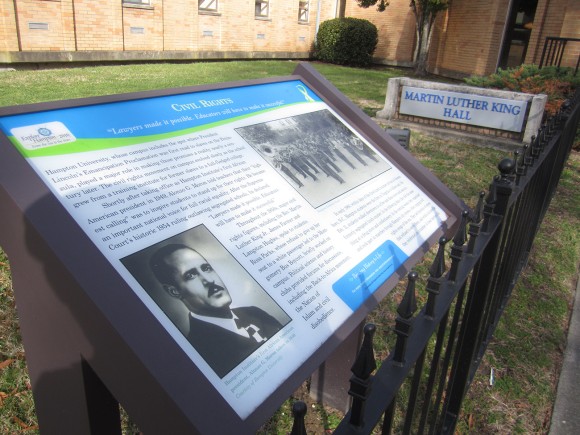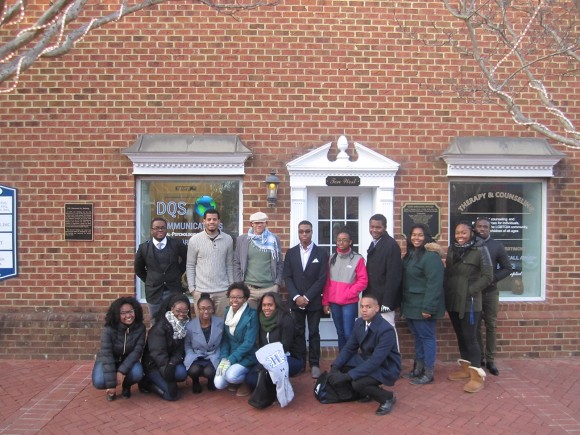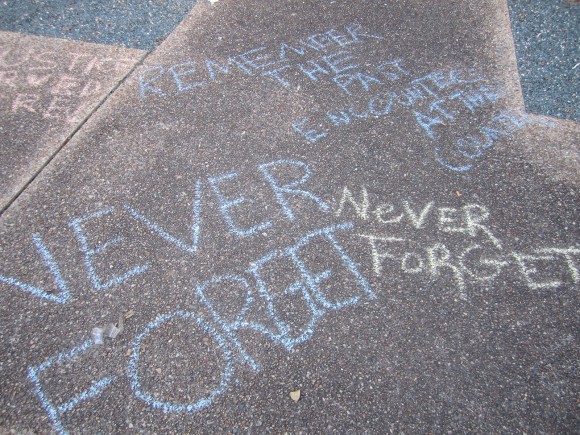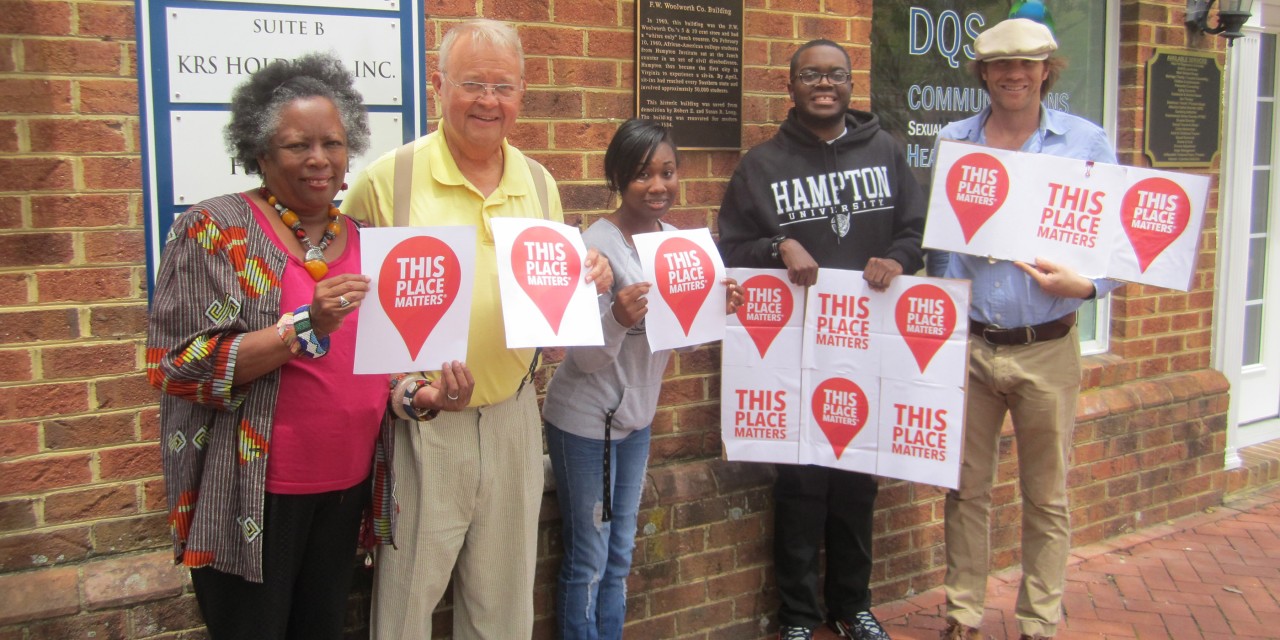In Hampton, Virginia, faculty, students, and community members are collaborating to recover and commemorate the history of the state’s first lunch-counter sit-in demonstration. On February 10, 1960, Black students from the Hampton Institute (now Hampton University) sat in protest at the segregated F.W. Woolworth lunch-counter in Hampton. This demonstration developed into picket lines, voter registration drives, and economic boycotts, all of which represented important challenges to segregation in Eastern Virginia and across the United States.

Despite the widespread repercussions of the sit-in, historian Zachary McKiernan discovered that the history of student activism at Hampton was not widely known.
“As a new faculty member, I was going to a lot of things on campus, learning about the history of the campus,” McKiernan explains. “There is a small interpretive sign outside the department, Martin Luther King, Jr. Hall, [with] a reference to the Hampton Institute students who sat in at the Woolworth’s in Hampton, Virginia, on February 10th, nine days after the Greensboro Four in North Carolina. [But] nobody was talking about the sit-in students and their contribution to the fight against Jim Crow.”
With a group of Hampton students, McKiernan formed a Black history club to investigate the university’s activist history in the archives and around town. The group collaborated with outside stakeholders, including veterans of the sit-in, author and curator Linda Holmes, and Luci Cochran, executive director of the City of Hampton History Museum. Together, the group planned a series of events for Black History Month including lectures, films, and a memorial walk to the former Hampton Woolworth’s.
The group also worked with the Hampton History Museum to host a panel featuring Hampton students from the time of the sit-in, who either participated in the demonstrations or followed up with picket lines, voter registration drives, and economic boycotts. “There was a lot of energy behind this. It was really exciting. It was a big crowd,” McKiernan recalls.
These activities laid the groundwork for a grant from the Virginia Foundation for the Humanities, funding three community conversations on race relations, the collection of oral history interviews, and a scholarly article.


Holmes and Cochran spearheaded the three community conversations about race relations, exploring the history, legacy, and future of the Civil Rights Movement in Hampton Roads. The conversations were held at a range of local cultural institutions and they included scholars, current students, former students who were involved in the sit-in and related actions, and members of the local African American community.
One of the conversations focused on the future of the Civil Rights Movement and connected the newly recovered past with present activism surrounding Black Lives Matter. Contemporary activists had the opportunity to learn about the history of the Hampton student protests, helping them to “feel more secure about their thinking about the need for protest,” Holmes explains. “They were aware that they were following a kind of Hampton student tradition that had meaning in the past. I think it helped them understand that even though they might not see the impact of their protest now, that in the long run it would have significance as did the protests of the 60s.”
McKiernan is currently working on the scholarly article, which will draw on the oral history research to tell the story of Virginia’s first lunch counter sit-in.
To McKiernan’s mind, the funding from the Virginia Foundation for the Humanities allowed his team to bring a higher profile to Hampton’s activist tradition: “It’s not just the sit-in at the Woolworth’s, it’s the voter registration drive that transpired out of that, it’s the economic boycotts, it’s the picket-lines. It really had a huge impact on dismantling Jim Crow in Eastern Virginia.”
